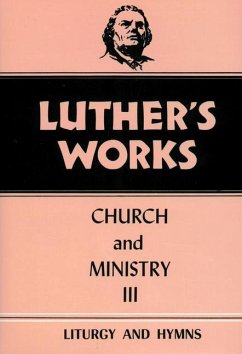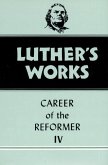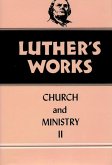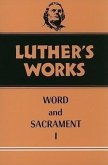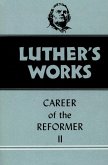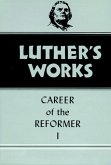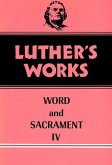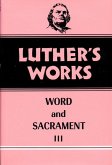Conflict between the church of Rome and the reformers reached its most violent peak in the five years before the Council of Trent in 1545, a council the pope had been delaying for years. Luther had not only given up hope for a "free, Christian council," but had also come to the conclusion that the authority of such a council was limited to reaffirming the ancient faith of the apostles. This radical departure from Rome's interpretation of its own authority forms the basis of Luther's new doctrine of the church -- and also of his advice to Protestant princes on the problems of ecclesiastical property. It is this doctrine of the church which is the theme of the three treatises written during this period and included in this volume.
Hinweis: Dieser Artikel kann nur an eine deutsche Lieferadresse ausgeliefert werden.
Hinweis: Dieser Artikel kann nur an eine deutsche Lieferadresse ausgeliefert werden.

